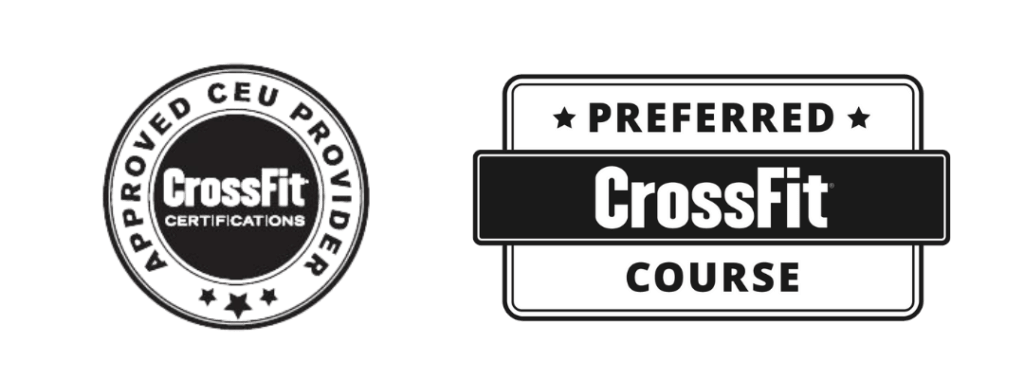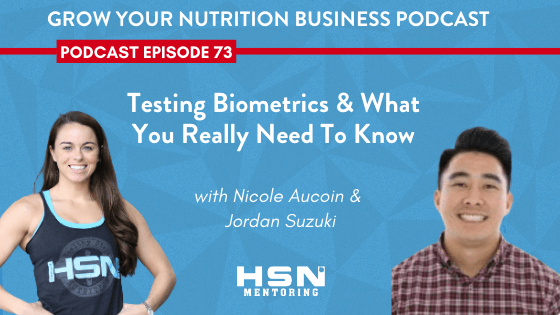If you are a gym owner looking to offer a nutrition coaching program in-house, you need a way to track your client’s progress.
In this episode of the Grow Your Nutrition Business Podcast, Nicole Aucoin and Jordan Suzuki discuss bioelectrical impedance and what you really need to know about the InBody. In this episode, they discuss the most commonly asked questions to ensure consistency between readings.
Contact Jordan here: jordan.suzuki@inbody.com
Topics Discussed In This Episode
What is bioelectrical impedance?
This works by sending small electrical frequencies through your body, and testing for your body composition. This breaks down your weight and what your weight is actually composed of.
You can even break down measurements into showing how much muscle you have in each limb of your body.
What's the best time of the day to perform an InBody scan on a client?
The best time is in the morning after waking up. Although this is not an ideal time for everyone to be tested, it’s recommended to keep the test time and day consistent for the client, regardless of what time of day they are available for the scan.
Can you eat or drink before an InBody scan?
It is not recommended to eat or drink within 3 to 4 hours before your scan. This is the best way to track accurate progress.
How does hydration levels affect an InBody scan?
Clients should be drinking an adequate amount of water, they do not want to be dehydrated. For example if you drink a large amount of water before the scan, it will be added as fat mass.
If you see results for a client that you’re not expecting or if a client has done really awesome, the first thing that you should look at is their water weight number. If it has gone down drastically, that could be one of the reasons why it looks like their muscle mass has gone down and body fat percentage has gone up.
How does menstruation affect an InBody scan?
This is not an ideal time to have an InBody scan. During menstruation women carry access fluid in their body and it fluctuates between going extracellular and intercellular. So you might notice increased body fat mass due to excess water.
Do you need to ask your client if they have a pacemaker?
Yes you should be asking your client this question. The frequencies from the InBody are so small that it can’t affect the pacemaker. But it’s recommended to get confirmation from their physician to make sure it’s safe.
How do you scan adaptive athletes with an InBody?
You would want to use the InBody s10, this model has sticky pads. The standard 270 model would not be the option to use.
Additional FREE Help Related To
Building A Nutrition Program In A Gym
LISTEN: How To Price & Package Your Nutrition Program HERE
LISTEN: How To Build A Nutrition Program Into A CrossFit Gym HERE
LISTEN: Nutrition Made Simple Podcast – CrossFit, Nutrition & Your Health HERE
HSN Mentoring Client Highlight: Meet Rob & Beth Young, Owners of CrossFit Rockland, How A 11-Year CrossFit Affiliate Changed Their Business Model To Prioritize Nutrition & Health Of Their Clients HERE
Free Course:
Building A Nutrition Program Into A Gym
Earn Three CrossFit CEUs By Taking This Nutrition Course
Did you know that HSN Mentoring has a turn-key solution for gym owners to build a nutrition program in-house?
HSN Mentoring is the largest nutrition mentorship business in the world, helping thousands of gym owners and coaches build successful nutrition programs.

All training and ongoing mentoring is approved for CrossFit CEUs
Join The Facebook Group:
Nutrition Made Simple For Gym Owners
Past Webinar Recordings
Live Q&As
Simple tips to help you build nutrition into your gym
Connect with other gym owners who are looking to build nutrition programs






